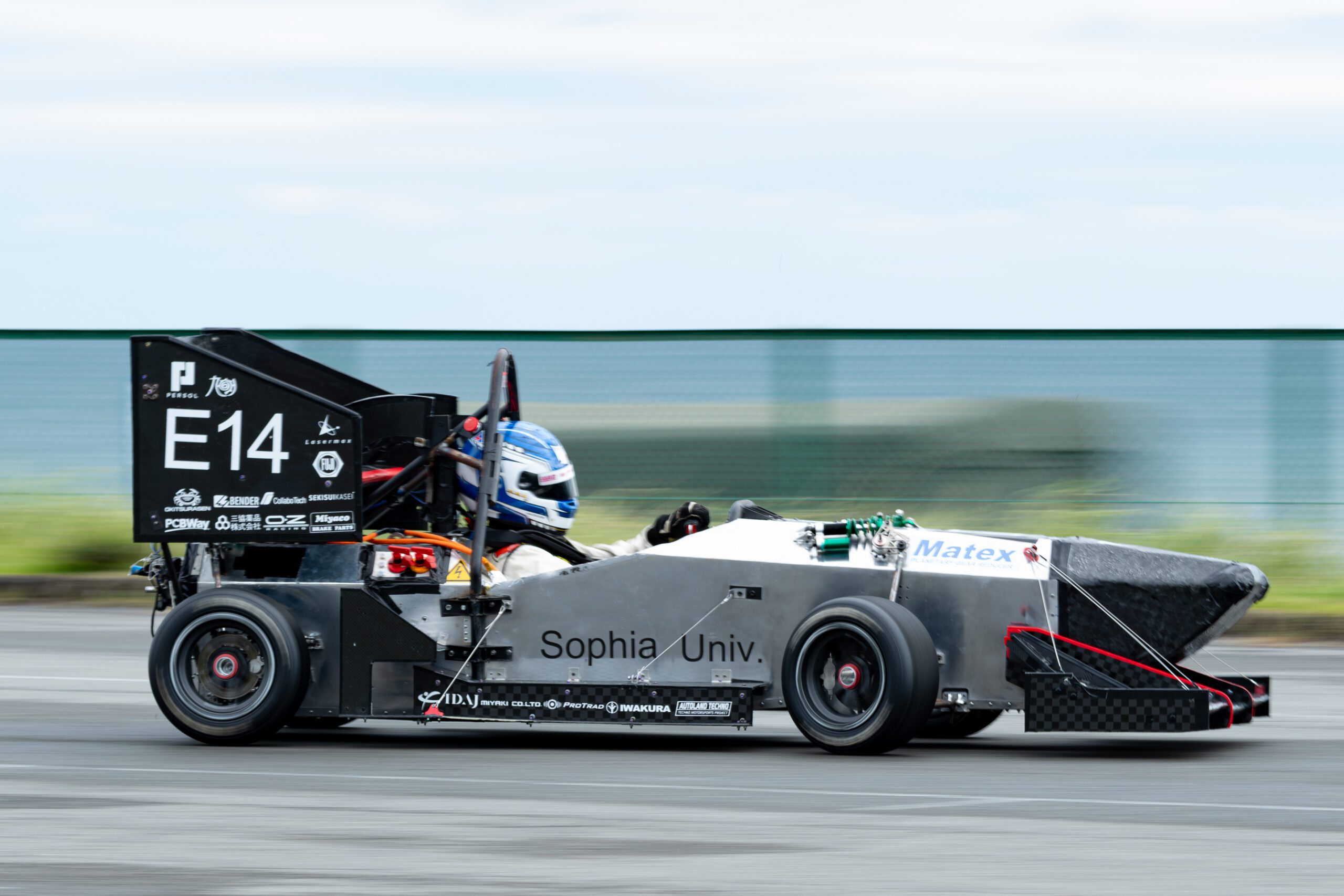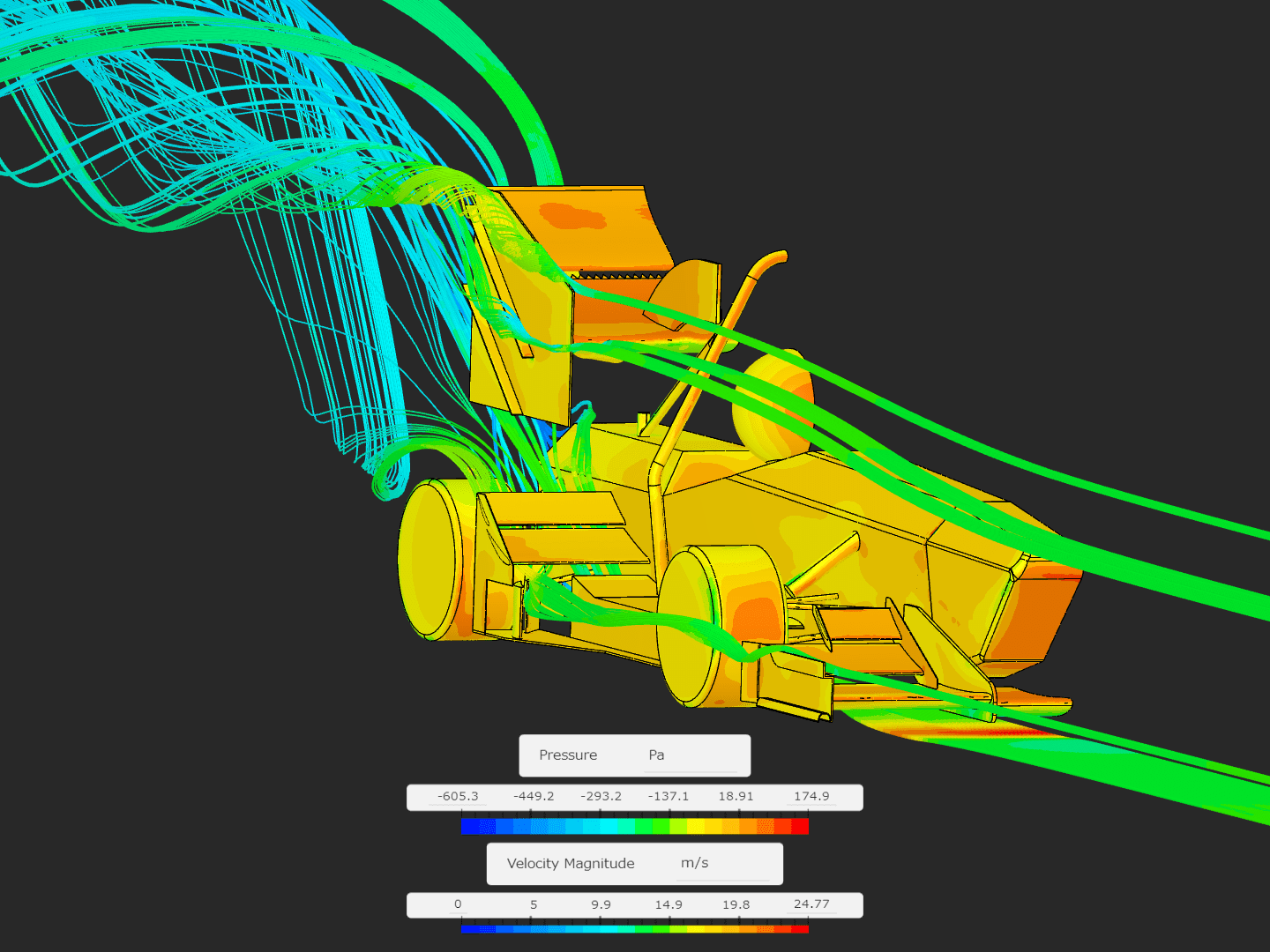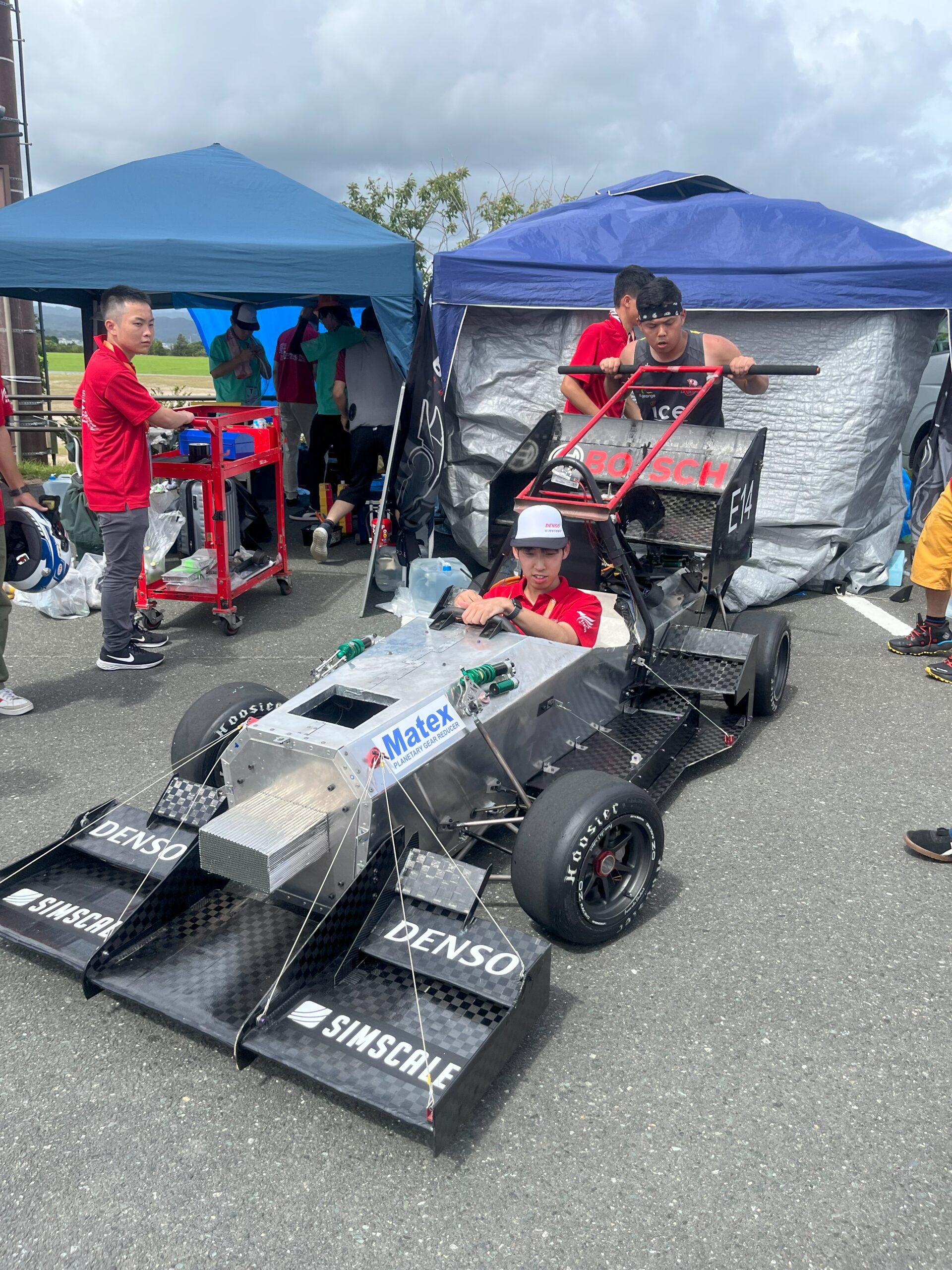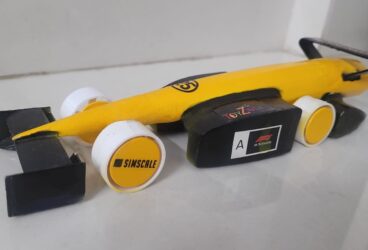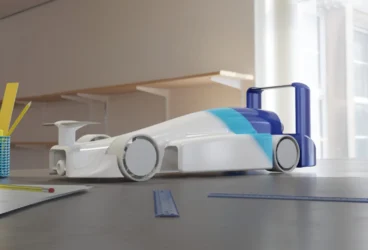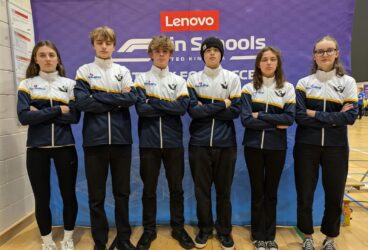The team, “Sophia Racing,” hailing from Sophia University in Tokyo, Japan, boasts a longstanding history of participation in FSAE international competitions since 2003. With five JSAE champion titles under their belt during the ICV era, the transition to electric vehicles in 2021, supported by sponsors, marked a significant milestone. Their primary objective revolved around completing the aero package for their inaugural electric vehicle, the ER02, aiming to optimize downforce while minimizing drag.
“Efficiency redefined: SimScale minimises computing demands and maximises productivity.”
– Team Sophia Racing
Team Sophia Racing: Uniting Expertise, Innovation, and Collaboration
Team Sophia Racing has been a prominent presence in Formula SAE events since its inception in 2000. Guided by the motto “Prove to the world~真価の証明,” the team is driven by the ambition to showcase the world-class carmaking skills of Japanese students.
Comprised of students from diverse academic backgrounds spanning STEM disciplines like engineering to non-STEM fields such as economics and law, Team Sophia Racing exemplifies the spirit of interdisciplinary cooperation. Despite their varied fields of study, all members share a common goal: to construct a winning car. Working in unison, they tackle the challenges inherent in crafting a complex machine like a racing car, demonstrating the power of teamwork and perseverance.
In addition to their engineering endeavors, Team Sophia Racing actively engages with sponsors through meetings and events, as well as participating in open campus initiatives hosted by their respective universities. Through these interactions, they not only showcase their technical prowess but also cultivate valuable connections within the broader community.
Analyzing Aerodynamics with SimScale
During the pandemic, the team faced challenges like severe understaffing, which impacted all facets of operations, including aerodynamic development. In navigating these obstacles, the necessity for a tool that could facilitate efficient and accurate simulations became apparent, particularly given the limitations imposed by remote work during quarantine. SimScale emerged as a solution due to its accessibility, irrespective of the computational capabilities of individual devices. Consequently, the team embraced SimScale as their simulation platform of choice.
Prior to incorporating SimScale into their workflow, the team had to familiarize themselves with simulation setup and meshing techniques. Fortunately, through the tutorials and workshops provided by SimScale on their website, the necessary knowledge and skills were swiftly acquired. This enabled the team to overcome barriers and effectively leverage SimScale for their aerodynamic development endeavors.
How SimScale Helped Address Challenges
In conducting the simulations, the team opted for incompressible flow simulation. The online tutorials provided by SimScale were instrumental in establishing the fundamental workflow for their project. Specifically, the tutorial titled “Incompressible Flow around a Formula Student Car” served as a valuable guide for configuring and meshing the simulation. Additionally, the team utilized the “Results Control” feature to assess vehicle performance during post-processing.
Initially, the team focused on conducting simulations for the front wing before progressing to simulations encompassing the entire vehicle. Upon analyzing the outcomes of full-car simulations, utilizing features such as Result Control, discrepancies in the performance of the car’s side-body were observed. Subsequent adjustments to the side-body geometry were made, effectively rectifying the identified issues.
Throughout the simulation process, the team encountered numerous errors. However, leveraging the array of online resources provided by SimScale proved instrumental in troubleshooting and overcoming these challenges. Additionally, the team leveraged the SimScale forum, where they posted queries regarding the issues they encountered, receiving valuable responses that contributed to resolving their simulation challenges.
“SimScale is a great solution for development of your project. It is accurate, convenient, and highly accessible. While other simulation tools relies on one’s computing capacity, SimScale is cloud-native, which gives you a huge advantage in terms of efficiency like our team did in the last project.”
– Team Sophia Racing
The team found the platform to offer remarkable convenience and simplicity. According to them, SimScale’s standout feature lay in its ability to utilize multiple cores, surpassing hardware limitations and significantly reducing time constraints. Team Sophia Racing was particularly impressed by the meshing component, which seamlessly aligned with their desired mesh quality and presented numerous parameters. Furthermore, the platform’s visual interface for analyzing solutions was not only comprehensive but also visually appealing.
Next Steps for Team Sophia Racing
As a consequence of engaging with simulations on SimScale, the team achieved its goal. The runtime for each simulation varied significantly, influenced by factors such as geometry and mesh density, typically ranging from 30 to 60 minutes for meshing and 3 to 5 hours for execution. Despite encountering a setback in the form of an electrical failure in their EV powertrain, which prevented participation in the dynamic event of the competition, the team’s efforts were recognized with the third-place Best Aerodynamics Award. This accolade underscores both the team’s dedication and the effectiveness of the simulations conducted through SimScale.
We’re confident that SimScale’s diverse simulation capabilities will significantly benefit the Sophia Racing Student team in upcoming endeavors, and we are eager for future collaborations. If your team seeks academic sponsorship to optimize your vehicle’s performance, whether for the SAE Aero Design Challenge or any other competition, make sure to check out our Academic Plan for students who are joining design competitions.
References
- Cui, Aiya & Zhang, Ying & Zhang, Pengyu & Dong, Wei & Wang, Chunyan. (2020). Intelligent Health Management of Fixed-Wing UAVs: A Deep-Learning-based Approach. 1055-1060. 10.1109/ICARCV50220.2020.9305491
